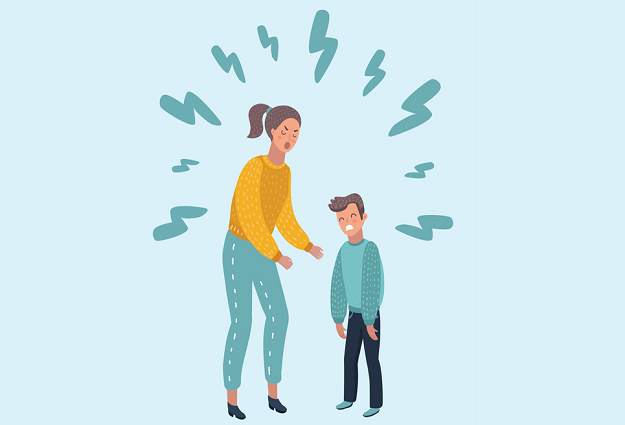
I grew up in a somewhat traditional home with strict rules on certain things while others weren't that big of a deal. One of the stranger things my family were strict on was the use of pronouns, or lack thereof.
It was considered a grave injustice to address an older family member using the pronouns "you", "your", "him" or "her". And first names? Out.
If I were to ask my grandmother, "Would you like some tea?", I'd get reprimanded for not saying "Would Gandma like some tea?"
Sounds familiar?
Now that I'm older, I noticed that I can actually get away with throwing in a pronoun here and there. This leaves me wondering if it's more of a thing parents enforce with younger children because they feel it will make them respectful?
Also see: Ever feel like you're cheating on your firstborn with your second child?
I've realised the whole pronoun prohibition thing is a lot more common than I thought. I'm not the only one who had the ABSOLUTE PLEASURE of saying things like:
"Mommy, can Mommy please pass Mommy's phone so I can make a phone call to Grandma to tell Grandma about Grandma's car?"
This is what I'd feel like after a single sentence:
Is it really that "disrespectful"?
I understand that as parents, we want our children to always be respectful of themselves and others, but is using the word "you" really such an abomination?
Do we really have to be extra careful of what we say when it comes to this?
Do we really measure respect by a rule children could easily forget?
I remember being younger and saying, "Yes please", thinking I'm being awfully polite and an aunty would still say, "Yes please who?" leaving me feeling like the most terrible little child.
Also see: Boys can have long hair too, and other truths for trolls
Talking in the third person
Many parents also speak to their younger children in the third person, but this is more of an attempt to get them to understand, not to enforce respect. It creates a sense of identity for parents, especially for those children who can't yet speak so that they know how to address their parents when they do eventually speak. They also don't fully grasp the concept of pronouns until they are a little older.
For example, a mother telling a toddler, "Can you please pass Mommy's bag?", helps the child who sees the item as "Mommy's bag", which essentially helps them understand what the item is and how to address their mother.
What about language learning?
Here's a little linguistics lesson for all the pronoun loathers.
Children usually learn about pronouns from the age of 3 and need it to help with their transitive construction.
According to Jane B. Childers and Michael Tomasello's study, "The Role of Pronouns in Young Children's Acquisition of the English Transitive Construction", for English-speaking children, "pronouns play a crucially important role in the acquisition of the basic transitive construction."
"Transitive construction" refers to transitive verbs, which are verbs that require a direct object. For example, in the sentence, "She cuts the page", "cuts" would be the transitive verb while "the page" would be the direct object.
Children therefore need to learn pronouns to form coherent sentences. Pronouns are required to make sentences clearer and essentially avoid repetition as well. Younger children may become confused when pronouns are omitted and may be slow to learn them when they eventually need to use it outside of the home context.
So before you enforce any rules, make sure your children know what the correct pronouns are and when to use them first.
Also see: Serena Williams admits she wonders if she is a good mother to daughter
Just a generational thing?
I definitely think the anti-pronoun rule is more of an older generation thing. Younger generations certainly wouldn't be as strict on the issue, especially since more and more children are calling their parents by their first names these days.
Some younger parents may be completely okay with it while older ones will most likely find it completely absurd and taboo. I guess the same counts for the pronoun rule then, not everyone is going to be okay with that either.
Coming down to the culture
Understandably, culture plays a big part in a lot of traditions or unspoken household rules, such as the omission of pronouns. It is a very western and progressive way of thinking to disregard traditions that have been enforced for years, especially when it comes to something as harmless as this one.
If it is something you value in your home as a symbol of respect, it is completely understandable. The main gripe with the no-pronouns rule is that it can become quite the mouthful!
But hey, that's just me reflecting on distressing childhood memories of big family gatherings and exhausting conversations.
Do you teach your children that it's wrong to address or refer to adults using pronouns and first names, or do you feel it's completely fine? Let us know.
Chatback:
Share your stories and questions with us via email at chatback @ parent24.com. Anonymous contributions are welcome.
Don't miss a story!
For a weekly wrap of our latest parenting news and advice, sign up to our Friday Parent24 newsletter.




 Publications
Publications
 Partners
Partners














